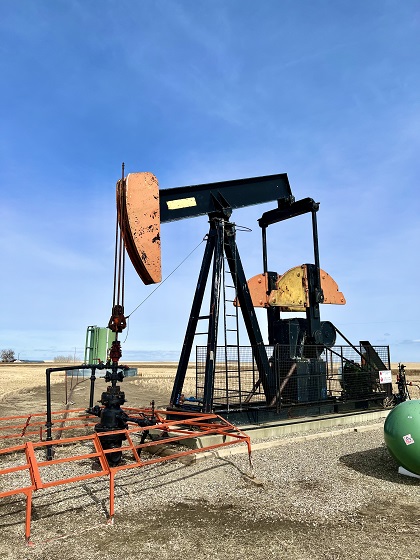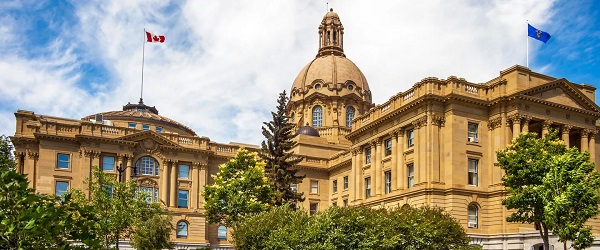Alberta
Alberta announces citizens will have to pay for their COVID shots

From LifeSite News
The government said that it has decided to stop ‘waste’ by not making the shots free starting this fall.
Beginning this fall, COVID shots in the province will have to be pre-ordered at the full price, about $110, to receive them. (This will roll out in four ‘phases’. In the first phases COVID shots will still be free for those with pre-existing medical conditions, people on social programs, and seniors.)
The UCP government in a press release late last week noted due to new “federal COVID-19 vaccine procurement” rules, which place provinces and territories as being responsible for purchasing the jabs for residents, it has decided to stop “waste” by not making the jab free anymore.
“Now that Alberta’s government is responsible for procuring vaccines, it’s important to better determine how many vaccines are needed to support efforts to minimize waste and control costs,” the government stated.
“This new approach will ensure Alberta’s government is able to better determine its overall COVID-19 vaccine needs in the coming years, preventing significant waste.”
The New Democratic Party (NDP) took issue with the move to stop giving out the COVID shots for free, claiming it was “cruel” and would place a “financial burden” on people wanting the shots.
NDP health critic Sarah Hoffman claimed the move by the UCP is health “privatization” and the government should promote the abortion-tainted shots instead.
The UCP said that in 2023-2024, about 54 percent of the COVID shots were wasted, with Health Minister Adriana LaGrange saying, “In previous years, we’ve seen significant vaccine wastage.”
“By shifting to a targeted approach and introducing pre-ordering, we aim to better align supply with demand – ensuring we remain fiscally responsible while continuing to protect those at highest risk,” she said.
The UCP government said that the COVID shots for the fall will be rolled out in four phases, with those deemed “high risk” getting it for free until then. However, residents who want the shots this fall “will be required to pay the full cost of the vaccine, the government says.”
The jabs will only be available through public health clinics, with pharmacies no longer giving them out.
The UCP also noted that is change in policy comes as a result of the Federal Drug Administration in the United States recommending the jabs be stopped for young children and pregnant women.
The opposite happened in Canada, with the nation’s National Advisory Committee on Immunization (NACI) continuing to say that pregnant women should still regularly get COVID shots as part of their regular vaccine schedule.
The change in COVID jab policy is no surprise given Smith’s opposition to mandatory shots.
As reported by LifeSiteNews, early this year, Smith’s UCP government said it would consider halting COVID vaccines for healthy children.
Smith’s reasoning was in response to the Alberta COVID-19 Pandemic Data Review Task Force’s “COVID Pandemic Response” 269-page final report. The report was commissioned by Smith last year, giving the task force a sweeping mandate to investigate her predecessor’s COVID-era mandates and policies.
The task force’s final report recommended halting “the use of COVID-19 vaccines without full disclosure of their potential risks” as well as outright ending their use “for healthy children and teenagers as other jurisdictions have done,” mentioning countries like “Denmark, Sweden, Norway, Finland, and the U.K.”
The mRNA shots have also been linked to a multitude of negative and often severe side effects in children and all have connections to cell lines derived from aborted babies.
Many Canadian doctors who spoke out against COVID mandates and the experimental mRNA injections were censured by their medical boards.
LifeSiteNews has published an extensive amount of research on the dangers of the experimental COVID mRNA jabs that include heart damage and blood clots.
Alberta
Alberta’s E3 Lithium delivers first battery-grade lithium carbonate
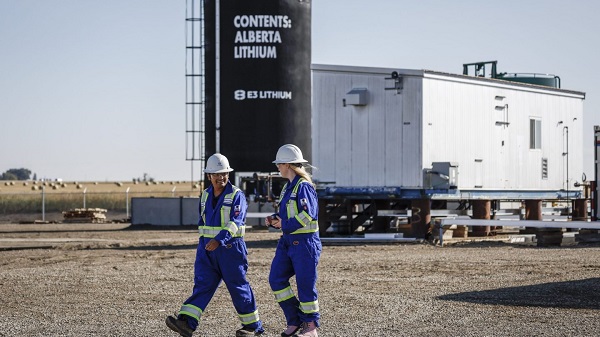
E3 Lithium employees walk through the company’s lithium pilot plant near Olds
From the Canadian Energy Centre
E3 Lithium milestone advances critical mineral for batteries and electrification
A new Alberta facility has produced its first battery-grade lithium carbonate, showcasing a technology that could unlock Canada’s largest resources of a critical mineral powering the evolving energy landscape.
In an unassuming quonset hut in a field near Olds, Calgary-based E3 Lithium’s demonstration plant uses technology to extract lithium from an ocean of “brine water” that has sat under Alberta’s landscape along with oil and gas for millions of years.
Lithium is one of six critical minerals the Government of Canada has prioritized for their potential to spur economic growth and their necessity as inputs for important products.
“The use for lithium is now mainly in batteries,” said E3 Lithium CEO Chris Doornbos.
“Everything we use in our daily lives that has a battery is now lithium ion: computers, phones, scooters, cars, battery storage, power walls in your house.”
Doornbos sees E3 as a new frontier in energy and mineral exploration in Alberta, using a resource that has long been there, sharing the geologic space with oil and gas.
“[Historically], oil and water came out together, and they separated the oil from the water,” he said.
“We don’t have oil. We take the lithium out of the water and put the water back.”
Lithium adds to Canada’s natural resource strength — the country’s reserves rank sixth in the world, according to Natural Resources Canada.
About 40 per cent of these reserves are in Alberta’s Bashaw District, home to the historic Leduc oilfield, where E3 built its new demonstration facility.
“It’s all in our Devonian rocks,” Doonbos said. “The Devonian Stack is a carbonate reef complex that would have looked like the Great Barrier Reef 400 million years ago. That’s where the lithium is.”
Funded in part by the Government of Canada and the Government of Alberta via Alberta Innovates and Emissions Reduction Alberta (ERA), the project aims to demonstrate that the Alberta reserve of lithium can be extracted and commercialized for battery production around the world.
E3 announced it had produced battery-grade lithium carbonate just over two weeks after commissioning began in early September.
In a statement, ERA celebrated the milestone of the opening of the facility as Alberta and Canada seek to find their place in the global race for more lithium as demand for the mineral increases.
“By supporting the first extraction facility in Olds, we’re helping reduce innovation risk, generate critical data, and pave the way for a commercial-scale lithium production right here in Alberta,” ERA said.
“The success from this significant project helps position Alberta as a global player in the critical minerals supply chain, driving the global electrification revolution with locally sourced lithium.”
With the first phase of the demonstration facility up and running, E3 has received regulatory permits to proceed with a second phase that involves drilling a production and injection well to confirm brine flow rates and reservoir characteristics. This will support designs for a full-scale commercial facility.
Lithium has been highlighted by the Alberta Energy Regulator (AER) as an emerging resource in the province.
The AER projects Alberta’s lithium output will grow from zero in 2024 to 12,300 tonnes by 2030 and nearly 15,000 tonnes by 2034. E3 believes it will beat these timeframes with the right access to project financing.
E3 has been able to leverage Alberta’s regulatory framework around the drilling of wells to expand into extraction of lithium brine.
“The regulator understands intimately what we are doing,” Doornbos said.
“They permit these types of wells and this type of operation every day. That’s a huge advantage to Alberta.”
Alberta
In Federal vs Provincial Battles, Ontario In No Longer A Great Ally For Alberta

Alberta Could Make A Deal With Bill Davis’ Ontario. Just One Problem.
Last month my friend Steve Paikin and I did a public appearance at the lovely Oshawa Town Square, recalling the highlights of our careers and the stories behind the stories. One of Steve’s stories was the subject of one of his 847 books, Bill Davis, the former premier of Ontario from 1971-1985.
He came to power the year our family moved to Ontario, so we watched his arc in power, from centrist Conservative to key figure in the interminable constitutional wrangles of the time. He typified a no-drama approach long before Barack Obama adopted it. His most controversial move was granting equal funding to Catholic schools. And smoking a pipe.
Which led me to ask Steve, the Most Ontario Man In The World, if it was still the same “place to stand, place to grow” province that Davis ruled. If anyone should know, the former TV Ontario stalwart was likely that person. Steve said that, generally, he felt that it was similar to what existed in the 70s and 80s. Obviously there were changes, but the mood was similar. After all, they’d elected Conservative Doug Ford three times.
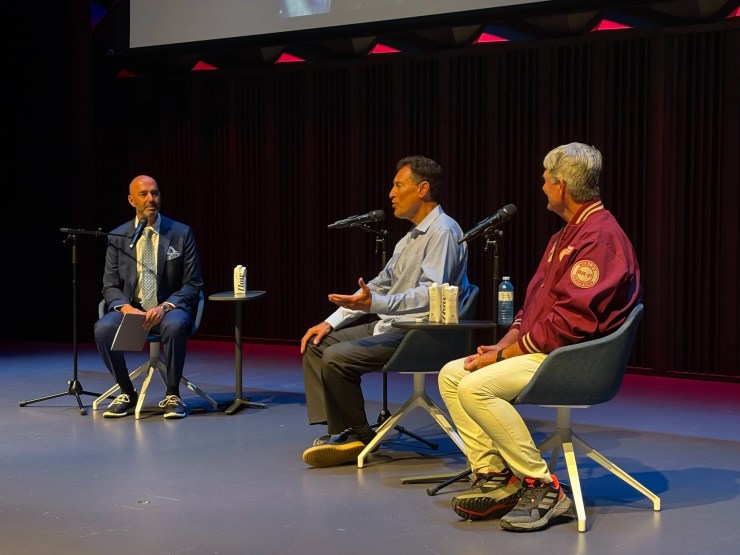
My response? That would make Alberta very happy. Alberta could make a deal with Bill Davis’ Ontario. Why? A Bill Davis Ontario would never tell another province to keep its oil in the ground, to hobble its economy to suit climate obsessions in his own province. A Bill Davis Ontario would support nation-building projects like trans-Canada pipelines not forcing Alberta to sell their oil at a discount to the U.S. A Bill Davis Ontario would never support gun seizures from law-abiding owners.
With respect, Steve, the Bill Davis Ontario is no more. There is no deal to be made at the moment. It is a place captured by the globalist fevers of Great Thunberg climate. It is a province in the thrall of liberal indigenous guilt marinated by its teachers and media. It is a province whose real-estate bubble is poisoning the national economy.
It is a province where politicians and leaders struggle to define a woman. Worst of all, Ontario returned an incompetent trust fund flibberty-gibbet not once, but three times as prime minister. The damage to the nation has been incalculable. Now they’ve elected his economic advisor.
And yet many of our Eastern friends believe that we are the ones who’ve have changed. They tell us we have drunk the cowboy Kool-aid and are now irredeemable. What they mean is, you’re become a traitor to your class. “Down the rabbit hole”. Cast out for being a Bill Davis centrist.
But we have not changed. Much of Alberta’s culture has not changed significantly, despite an NDP episode in government from 2012-15. Bill Davis, who died in 2021, would not find much change outside of the immigrants dropped on it by Justin Trudeau were he to visit today.
But eastern Canada? The whiplash changes might best be summed up by Vince Gasparro, the Liberal MP for a midtown Toronto riding, claiming that Canada’s economy is swell compared to other nations. To which the interim parliamentary budget officer Jason Jacques said just because someone else is 450 pounds and sick doesn’t mean an obese 350-pound person is healthy.

Forecasting a conservative $68.5 billion deficit, Jacques called the economy “unsustainable” and said the nation is at the precipice. “We’re at a point where, based upon our numbers, things cannot continue as they are, and I think everybody knows that,” Jacques said, He was immediately attacked by Liberal bot-world claiming he’s angling for a job with the Conservatives.
The closing of the Laurentian mind reflects what happened to the NDP, the party of Tommy Douglas. Once a national lean-left collection of union workers, farmers, culture figures and academics, it took its lead from the avuncular Ed Broadbent, Audrey McLaughlin and even Jack Layton. Socialist with a friendly face. The leaders calmed the Marxist fevers of their radical fringe.
Then, in the aftermath of Layton’s death, the party convulsed. The union workers and farmers were pushed out by radicals drunk on virtue. Under the DEI hire Jagmeet Singh they purged common sense, leaving Liberals to scoop up their less unhinged members. The survivors of Jagmeet wore keffiyehs in Parliament and predicted environmental doom. The party became irrelevant in 95 percent of the nation.
Their reward was a descent from 103 seats in the 2011 election to non-party status with just seven seats and six percent of the vote this year. While they make noises of relevance, they are now like the Monty Python “Bring out yer’ dead” skit in Search For The Holy Grail.
Which is gravy for the Carney Liberals who can now talk centre but govern as far left as it wishes. Which the Toronto Star says may soon include criminalizing residential school “denialism.” The author Michelle Good says that questioning the unsupported tales of murdered babies is just like “holocaust denial”.
The NDP collapse mirrors what is happening to the Democratic Party in the U.S. By design or by accident Donald Trump has bludgeoned them into assuming most of the policies that are now putting a torpedo into the NDP. Defending crime, endorsing unfettered illegal immigration, patronizing Hamas and other bad actors on the world stage, Balkan economics. Hollywood preening.
While the reviled Trump remains unrepentant, Democrats continue to sink in the polls. Married to California values they’re at 28 percent approval in the polls, and none of their potential 2028 presidential hopefuls is adding anyone to the base.
So the DEMs leadership intimidates its followers with this fatal equation, claiming to be the party of the future. There are a scarce few who remind their colleagues of what’s been lost. Pennsylvania senator John Fetterman who won his crucial seat despite enduring a stroke during the election run-up, is sounding warnings, however.

“Unchecked extreme rhetoric, like labels as Hitler or fascist, will foment more extreme outcomes,” Fetterman wrote. “Political violence is always wrong — no exceptions. We must all turn the temperature down.”
“Absolutely, it’s a reward for Hamas,” he said after Canada and other nations recognized a Palestinian state. “That’s going to be their narrative. They’re going to claim ‘That’s why we did 10/7. That birthed our nation,’ and I can’t ever give that to them.”

But his fellow party members are too engrossed in Jimmy Kimmel’s veneration at BlueSky, the Woke site, to notice that their base has deserted them. Canada’s liberals looking over the edge still get their reinforcement from like-minded people and a bribed media. But as Jacques says, the end is nigh, and everyone knows it.
Bruce Dowbiggin @dowbboy is the editor of Not The Public Broadcaster A two-time winner of the Gemini Award as Canada’s top television sports broadcaster, his new book Deal With It: The Trades That Stunned The NHL And Changed hockey is now available on Amazon. Inexact Science: The Six Most Compelling Draft Years In NHL History, his previous book with his son Evan, was voted the seventh-best professional hockey book of all time by bookauthority.org . His 2004 book Money Players was voted sixth best on the same list, and is available via brucedowbigginbooks.ca.
-

 Artificial Intelligence18 hours ago
Artificial Intelligence18 hours agoThe App That Pays You to Give Away Your Voice
-

 Health19 hours ago
Health19 hours agoThe Religious Faith in Vaccines has been Challenged, Forcing New Studies and More Rigorous Standards
-
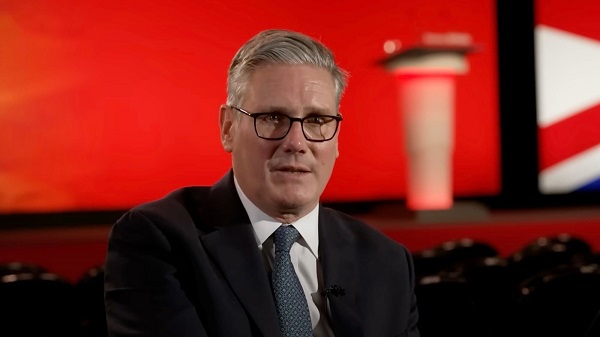
 Business2 days ago
Business2 days agoUK Government Dismisses Public Outcry, Pushes Ahead with Controversial Digital ID Plan
-
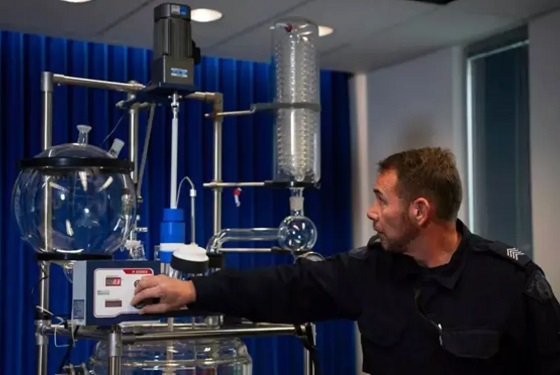
 Crime2 days ago
Crime2 days agoThe “Strong Borders Act,” Misses the Mark — Only Deep Legal Reforms Will Confront Canada’s Fentanyl Networks
-
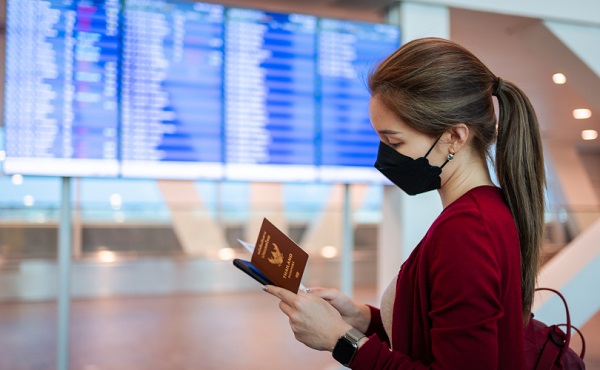
 COVID-192 days ago
COVID-192 days agoBiden admin put ‘anti-maskers’ on TSA no-fly list normally reserved for terrorists
-

 Business2 days ago
Business2 days agoCarney government refuses to make tough decisions to avoid larger deficit
-
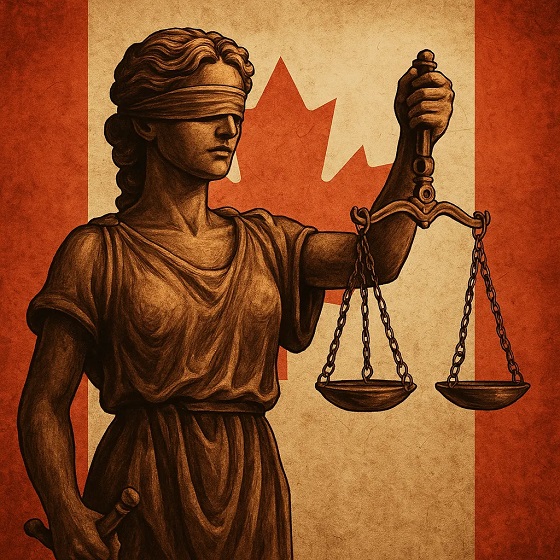
 Censorship Industrial Complex2 days ago
Censorship Industrial Complex2 days agoBill C-9 and the Tyranny of Feeling Heading Straight for Canadians
-

 Red Deer2 days ago
Red Deer2 days agoThe City or Red Deer Financial Troubles: The Role of Good Governance, Effective Policies and Key Performance Metrics.




